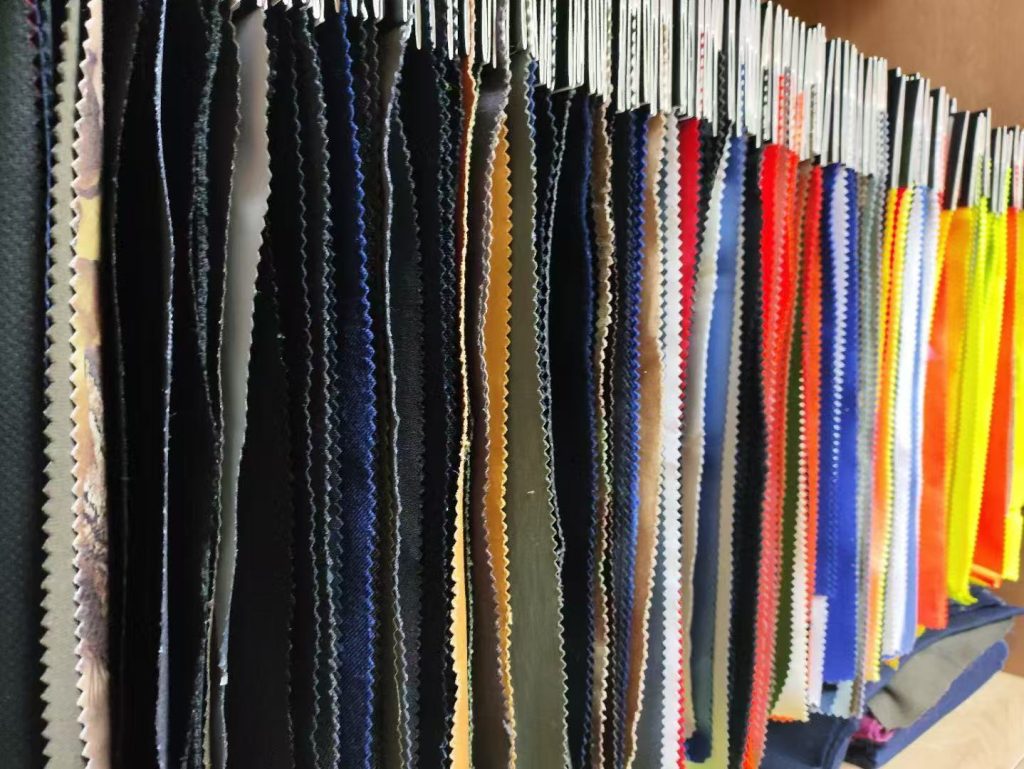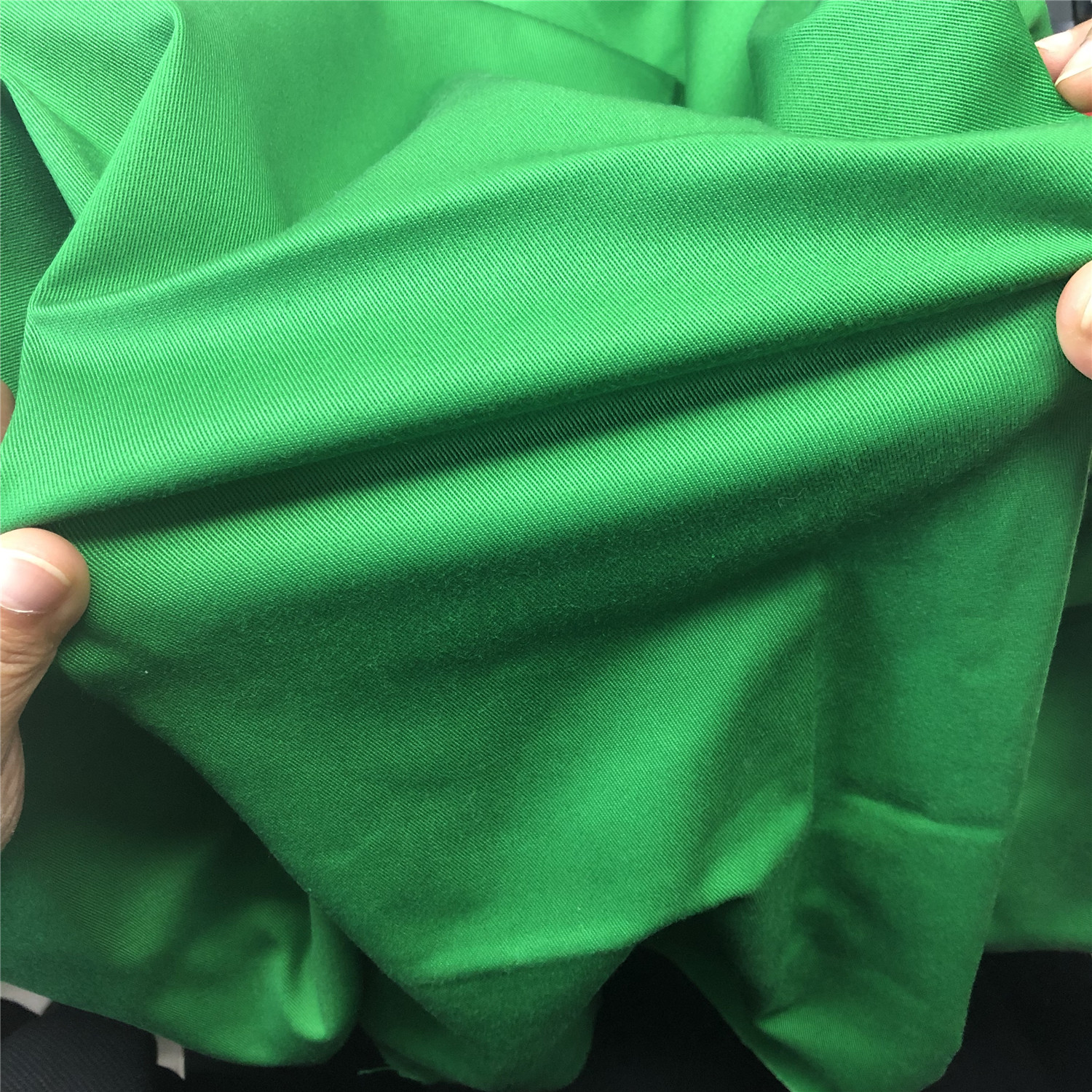In today’s work environments, fabrics need to do more than just cover the body — they need to move with it, withstand harsh industrial washing, and still look professional after dozens of wears. As fabric buyers, you’re not just sourcing materials. You’re investing in performance, durability, and consistency. That’s why Stretch Workwear Fabric is quickly becoming the go-to option for professionals across multiple industries.
This guide will walk you through the different types of stretch fabrics, their performance differences, and what to watch out for when placing bulk orders of 3,000–5,000 meters or more.
🟢 What Is Stretch Workwear Fabric?
Stretch workwear fabric is a performance textile designed for labor-intensive jobs, combining elasticity, durability, and wash resistance. Common types include EME, Spandex, PBT, EOL, and Sorona®. They’re widely used in industries like security, medical, manufacturing, and outdoor work — where movement and resilience matter.
🔄 Comparison of Stretch Fabric Types
Here’s a quick breakdown of how different types of stretch fabrics perform in real-life B2B applications:
| Fabric Type | Stretch Range | Industrial Wash Safe | Wash Durability | Chlorine Resistant | Eco-Friendly | Recommended Usage |
|---|---|---|---|---|---|---|
| EME | 12%–18% | ✅ Excellent | 70+ cycles | ✅ Yes | ♻️ Recycled Poly | Security, Manufacturing |
| Spandex | 22%–30% | ⚠️ Moderate | 30–50 cycles | ⚠️ Limited | ❌ Petro-based | Uniforms, Light-duty Wear |
| PBT | 8%–13% | ✅ Excellent | 60+ cycles | ✅ Yes | ♻️ Recyclable | Food, Medical, Sanitation |
| EOL | 15%–20% | ✅ Good | 50–60 cycles | ⚠️ Medium | ♻️ Low-carbon | Multi-purpose Workwear |
| Sorona® | 12%–28% | ✅ Excellent | 70+ cycles | ✅ Yes | ♻️ Bio-based | Eco-friendly Projects |
📌 Tip: Always test with swatches before bulk orders to confirm fabric properties under your application needs.
🧼 Why Industrial Wash Durability Matters in Workwear Fabric
If you’re buying for industries like healthcare, food processing, cleaning services, or rental uniforms, one of the most important things you can ask your supplier is this:
"Can this fabric survive industrial washing… repeatedly?"
Industrial washing uses hot water, heavy-duty detergents, bleach, and high-speed machines. It’s rough — far more than home laundering. A fabric not built for this will:
- Lose elasticity after 20–30 washes
- Pill and fade quickly
- Shrink or warp, ruining the uniform’s fit
That’s why it’s essential your stretch workwear fabric is certified or tested for:
- ISO 15797 compliance
- Color fastness ≥ Grade 4 (AATCC/ISO)
- Chlorine bleach resistance (ISO 105 N01)
- At least 50–70 wash cycles durability
High-performance blends like PBT, EME, and Sorona® are engineered to handle this level of abuse while keeping their stretch, shape, and color. Your clients won’t just notice the difference — they’ll thank you for it.
🧩 How to Match Fabrics with Industry Applications
Choosing the right fabric isn’t just about specs — it’s about the job your customers are doing. Here’s how to match stretch fabric types with real-world use cases:
👨⚕️ Healthcare / Cleaning / Food Service
- Recommended: TL-EME2504, TL-PBT2501
- Key Needs: Bleach resistance, antibacterial, stain protection
- Why: Frequent wash, strict hygiene, harsh cleaning agents
🛡️ Security / Industrial Work / Heavy-duty Manufacturing
- Recommended: TL-SP2503, TL-EME2503
- Key Needs: Anti-static, tear-resistant, flexible
- Why: Demanding physical movement with high safety standards
🌱 Eco-conscious Orders / Government Projects
- Recommended: TL-ECO2501 (with Sorona®), TL-ECO2504 (organic cotton)
- Key Needs: Certified sustainable, long-lasting
- Why: Environmental compliance, long wear life
📩 Want to see fabric swatches or spec sheets? Request them here
📦 What to Know Before Placing Large Orders
Buying 3,000–5,000 meters per color isn’t just about price — it’s about reliability, service, and consistency. Here’s what we recommend you check:
- Product consistency: Confirm elastic percentage, fabric weight, and color batch stability are within ±5%
- Certifications available: Look for ISO, ASTM, OEKO-TEX, GRS or other global standards
- Lead Time: Usually around 15–20 days from order confirmation. For samples, add 5–7 extra days.
- Eco-compliance: Especially for exports to EU/US — make sure your fabrics are pre-certified
And most importantly…
Make sure your sales representative is professional, patient, and responsible.
A good rep will follow up on production, handle issues quickly, and give you true peace of mind after the PO is placed.
🧾 Download our B2B order checklist: Click here
✅ Final Thoughts
In the world of professional uniforms and industrial-grade apparel, not all stretch fabrics are created equal. The wrong fabric can mean re-orders, customer complaints, and lost time.
The right fabric? It’s a smooth experience from first wash to final wear.
If you’d like help with selecting, sampling, or customizing stretch workwear fabric, we’re here to support you — no matter the scale. Feel free to reach out anytime.


